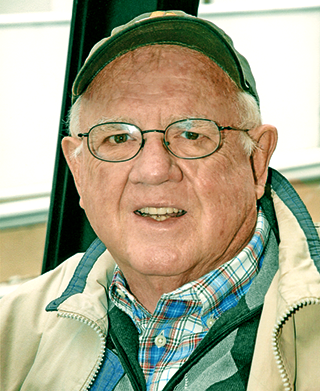With recent concerns among growers in regard to the use of dicamba and uncertainty about a possible regulatory reduction in soybean traits, Syngenta business leaders say the company is ready to help farmers move forward with new innovations and technologies to remain competitive.
Justin Wolfe, the president of Syngenta Seeds, says that despite an earlier uncertainty with the XtendFlex soybean varieties, farmers are gaining clarity in making decisions for next year’s cropping programs. He maintains Syngenta is in one of its strongest positions ever with a really wide choice of optional soybean traits and new genetics.
Besides the big companies, Wolfe says regional and international players are also strong seed competitors for 2021 sales. “There is going to be heightened competitiveness and more trait offerings,” he says. “Our goal as a company in the next 10 years is to continue to help farmers navigate in what can sometimes be a very confusing market,” he says. “Our role is to help bring clarity out of chaos for the seed business.”
Carbon Sequestration Important
Besides providing growers with new cultural practice ideas, Vern Hawkins says a company goal is helping farmers learn to measure and understand the impact of greenhouse gasses and carbon emissions.
“There are technologies that we certainly see continuing to contribute to a different kind of soil health and therefore plant response,” says the president of Syngenta Crop Protection. “This produces benefits on both sides in terms of sequestration of carbon and lower or better utilization of inputs.”
Trevor Heck says the company is looking at new technology in terms of not only what value it can provide to the farmer, but also in terms of what it can offer for sustainability. The president of Syngenta Canada says one example is the recent acquisition of the biological company Valagro, which will play a key role in Syngenta’s future cropping strategies.
Hawkins adds that biologicals are becoming more important as a number of growers have diversified their operations. An example is moving a portion of their ground to organic production.
“When you look at the more conventional farmer who hasn’t had exposure to biologicals, it’s an area of interest, but not necessarily a huge demand driver,” he says. “Performance and return on investment are still things they very much care about. But if it contributes to solving a problem like resistance management or if there are opportunities in the soil health space that deals with utilization or crop response, they’re interested in learning about those benefits.”
Different Needs for Different Growers
Hawkins says the overall Syngenta crop product mix has never been stronger, especially with fungicides, seed care and herbicides. “This is important since resellers have different types of growers in terms of their needs,” he says.
“Some growers are very much on the technology end of the spectrum with a focus on a high return on investment while others are more focused on the value-oriented end and looking for something that’s just adequate due to their farmland or type of operating budget.”






